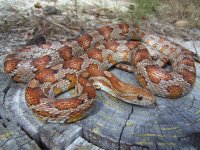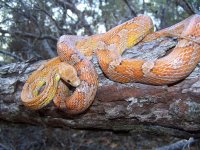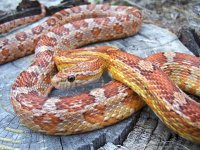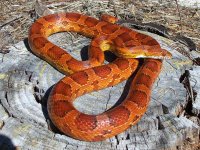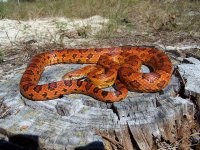-
Hello!
Either you have not registered on this site yet, or you are registered but have not logged in. In either case, you will not be able to use the full functionality of this site until you have registered, and then logged in after your registration has been approved.
Registration is FREE, so please register so you can participate instead of remaining a lurker....
Please be certain that the location field is correctly filled out when you register. All registrations that appear to be bogus will be rejected. Which means that if your location field does NOT match the actual location of your registration IP address, then your registration will be rejected.
Sorry about the strictness of this requirement, but it is necessary to block spammers and scammers at the door as much as possible.
You are using an out of date browser. It may not display this or other websites correctly.
You should upgrade or use an alternative browser.
You should upgrade or use an alternative browser.
Cooler name for "normal" corn snakes?
- Thread starter Stephan Grundy
- Start date
kathylove
Pragmatic & Logical
I always used the name "classic" for any normal corn that was really pretty (IMO, of course), and wasn't selectively or locality bred to be any particular variety, such as okeetee or Miami, etc. If I didn't deem it especially pretty (eye of the beholder, of course!), then I would just call it a normal corn. There is nothing scientific about my designation of whether an individual is a normal or a classic - just my opinion, which many of my customers have found helpful over the years.
dave partington
Crazy Dave
I try to use "classic" to refer to wild-type color.
I use 'wild-type' to refer to the common wild-caught pattern, even if it's not a classic.
I use 'wild-type' to refer to the common wild-caught pattern, even if it's not a classic.
Walter Smith
CRAZY BOUT' CORNS !!
I've always used the term "Classic", but have seen the term "Common" used as well.
Walter
:crazy02:BOUT' CORNS !!
Walter
:crazy02:BOUT' CORNS !!
Mark Dwight
New member
I like 'wild type." Because that's what they are.
kathylove
Pragmatic & Logical
"Wild type" is an apt description. But I remember an interesting thread on the KS law forum several years ago about semantics and our hobby / industry. Somebody said that we should be cognizant of how our terms appear to the non herpers in the general population. Because we are now raising what are, or are becoming, domestic pets rather than wild animals, it will help us raise awareness of that fact if we start using more terms common with domestic animals (pets or livestock) rather than those used with wildlife.
True, it is a double edged sword. On one hand, we bemoan the fact that new herpers have often become "deli cup herpers" without much knowledge of the wild origins and natural history of their corns, ball pythons, or other herp pets. But on the other hand, dog, cat, and rabbit owners don't need to know a lot about the natural history of their pets' ancestors to become good pet owners of their species. We herpers are in the middle, with not quite domestic animals, but not truly wild pets, either (at least in the case of corns and a few other selectively bred herps). I think it is still important for all herp keepers to learn as much as possible about the natural history of various herps, and to appreciate nature in general. Yet from a legal perspective, we would be better off if the public considers us a domestic pet keepers rather than exotic keepers. An interesting conundrum.
So that is a long winded explanation of why I like to avoid the term "wild type" in our (sort of) domesticated corns.
True, it is a double edged sword. On one hand, we bemoan the fact that new herpers have often become "deli cup herpers" without much knowledge of the wild origins and natural history of their corns, ball pythons, or other herp pets. But on the other hand, dog, cat, and rabbit owners don't need to know a lot about the natural history of their pets' ancestors to become good pet owners of their species. We herpers are in the middle, with not quite domestic animals, but not truly wild pets, either (at least in the case of corns and a few other selectively bred herps). I think it is still important for all herp keepers to learn as much as possible about the natural history of various herps, and to appreciate nature in general. Yet from a legal perspective, we would be better off if the public considers us a domestic pet keepers rather than exotic keepers. An interesting conundrum.
So that is a long winded explanation of why I like to avoid the term "wild type" in our (sort of) domesticated corns.
Mark Dwight
New member
"Wild type" is a description of both a gene(s) and a phenotype. A "normal" or "classic" is homozygous for "wild type" genes and lacks visible mutant genes. It's important for those new to the hobby to properly understand genes and start off on the right foot...and we can't help them understand unless they first know the difference between wild type genes and mutant genes...and the difference between wild and wild *TYPE* (all domestic animals still carry wild *TYPE* genes.)
We shouldn't change it just because it might not sound friendly to the general public. If that were really a concern we should also drop the name "snake" from our pets.
We shouldn't change it just because it might not sound friendly to the general public. If that were really a concern we should also drop the name "snake" from our pets.
Mark Dwight
New member
Just as a example; If a corn snake has one copy of a motley gene (het. motley) Do we say it has one classic and one motley gene at this allele? No, we say it has one motley and one wt (wild type) gene.
This is just one of the many reasons I feel calling them wt is important. It gives a better understanding of genetics.
This is just one of the many reasons I feel calling them wt is important. It gives a better understanding of genetics.
Tavia
Elemental Exotics
I don't know, to me there is also the whole trade name/marketing thing to consider as well. Classic, as a trade name is more appealing than the term normal, although by some definitions, both are correct. Wild type, the most genetically correct term, I'm not sure I have a firm opinion on for appeal, I like it better than normal but probably not as well as classic. If you're going to say that what snakes should be called is the most accurate genetically, then we should not use the term Snow, Charcoal etc. But people give almost all animal morphs of just about any type that are bred to be sold those types of slang terms, because it's more appealing and will help sell them better.
captainjack0000
Student
What about 'regular'?
captainjack0000
Student
Or "original"
or "historic"
or "old-timey"
or "the awesomorph"
or "the first-type"
I'm just tossin' out ideas. I make no claims to their quality.
or "orange-inal" (a portmanteau of orange and original)
or "southeastern-carolina-ish-saddle-backed-goodness morph"
or "historic"
or "old-timey"
or "the awesomorph"
or "the first-type"
I'm just tossin' out ideas. I make no claims to their quality.
or "orange-inal" (a portmanteau of orange and original)
or "southeastern-carolina-ish-saddle-backed-goodness morph"
Mark Dwight
New member
My local pet shop calls them Red Corns. Which is as good as any other if you just want a cute name that helps them get out the door faster.
Susan
Go Ahead, Make My Day!
Again, I've used all of these terms and IMO, the use of one term over the other often depends upon the circumstances surrounding their use.
Here are 5 corn snakes that have been in my collection. Which are "normal", which are "classic" and which are "wild type"? And I am purposely NOT using terms such as "Miami phase" and "Okeetee phase" as I would not apply either of those terms to any of the snakes shown. And then, try to explain to a newbie why the first one looks so much different than the last one and yet they are the same morph!
Here are 5 corn snakes that have been in my collection. Which are "normal", which are "classic" and which are "wild type"? And I am purposely NOT using terms such as "Miami phase" and "Okeetee phase" as I would not apply either of those terms to any of the snakes shown. And then, try to explain to a newbie why the first one looks so much different than the last one and yet they are the same morph!
Attachments
Mark Dwight
New member
Obviously the classic is the one Kathy finds the most attractive. The normals are the ones with het mutant genes and the wild types are the nippy ones or ones that that escaped. 
captainjack0000
Student
Again, I've used all of these terms
Even "southeastern-carolina-ish-saddle-backed-goodness morph"
:sidestep:
TwinBlades
New member
"wild" is a beautiful title to me, like wild horses or wolves your snake represents the original design nature made. now I have nothing against man made morphs, but flashy colors do not make one snake better than another, just more expensive.

